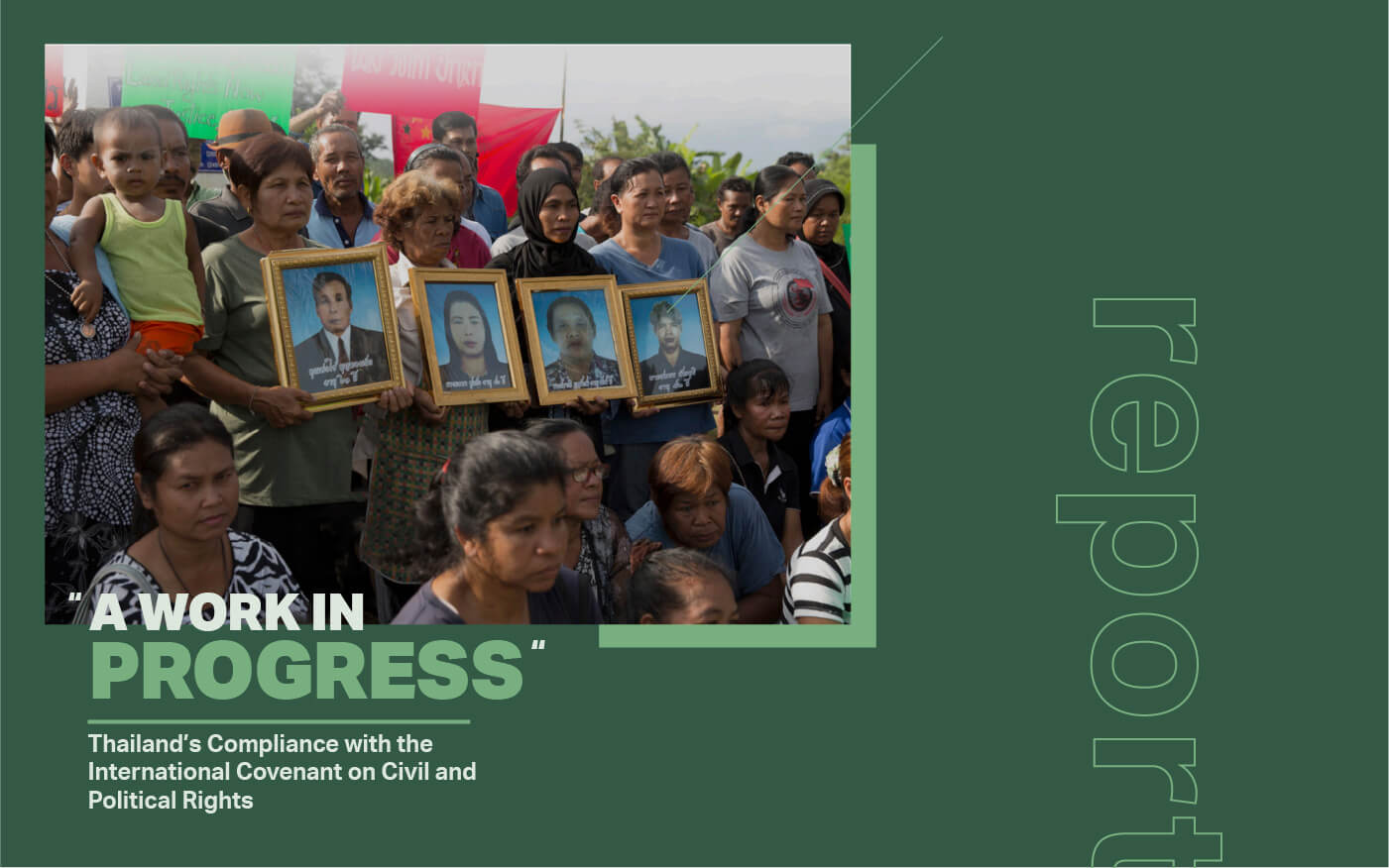Thailand’s Compliance with the International Covenant on Civil and Political Rights
The International Covenant on Civil and Political Rights (ICCPR) is a core instrument of international human rights law, codifying key protections. Together with the International Covenant on Economic, Social, and Cultural Rights and the Universal Declaration of Human Rights, it forms the universal bill of human rights—or what is referred to as the normative framework of human rights law.
Thailand became a state party to the ICCPR in 1996 and, as such, is legally bound to uphold and implement its provisions. The United Nations Human Rights Committee (hereinafter referred to as “the Committee”), an 18-member body of independent experts elected by U.N. member states, monitors the implementation of the treaty.
State parties to the ICCPR are required to submit periodic reports to the Committee upon request regarding how the rights enshrined in the ICCPR are being implemented.
This report considers Thailand’s implementation of the ICCPR and its responses to issues raised by the Committee. It draws on research conducted by Fortify Rights between 2014 and 2017, including eyewitness, survivor, and human rights defenders’ testimonies collected in various locations in Thailand. It is also based on information collected through monitoring trials in Thai courts and analyzing official government, court, and U.N. documents.
